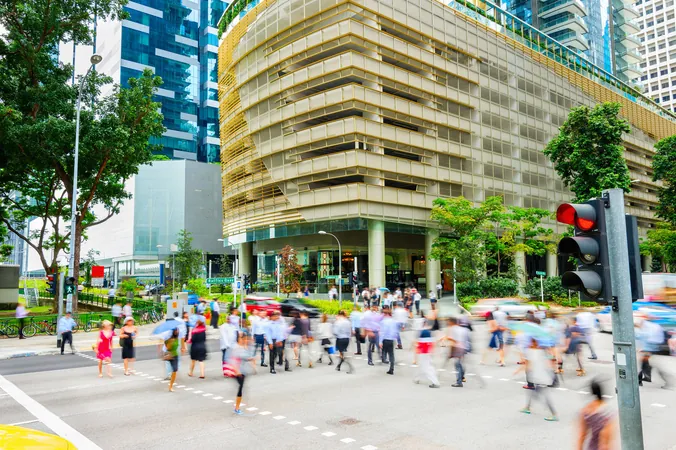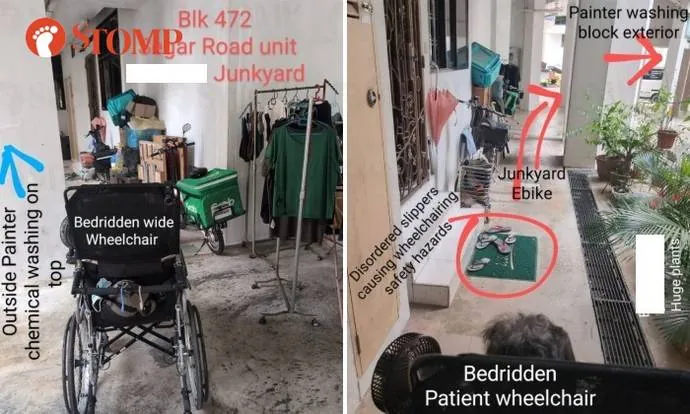
Singapore Workers Express Discontent with Hybrid Work Arrangements in Groundbreaking Global Survey
2024-09-19
Introduction
A recent global workplace survey conducted by Unispace reveals that Singaporeans exhibit the highest dissatisfaction rates with current hybrid work arrangements when compared to other countries. While hybrid setups have become increasingly common, Singaporean employees feel these arrangements fail to cater to their needs, particularly in terms of quiet workspaces and overall flexibility.
Employer vs Employee Satisfaction
In stark contrast, Singaporean employers report significant satisfaction with existing working conditions, reflecting a disconnect between expectations and experiences.
The survey indicates a mere 78% satisfaction rate among Singaporean employees regarding their hybrid work setups, the lowest globally. In comparison, an impressive 94% of Singaporean employers express satisfaction, slightly above the global average of 95%. This disparity raises the question: what changes must be made to improve employee contentment and encourage them back into the office?
Government Response
To address these challenges, the Singapore government introduced the Tripartite Guidelines for Flexible Work Arrangements earlier this year. Implementation is scheduled for December 2024, aiming to better align the needs of both employers and employees.
Employee Priorities
Jianhan Qiu, Principal of Strategy (Asia) at Unispace Singapore, highlighted the implications of high employee dissatisfaction. “With such feedback from workers, it is unsurprising that the government has formalized flexible working guidelines,” he stated. Qiu emphasized that flexible schedules are a top priority for Singaporean employees, who seek more adaptable work environments to enhance inclusivity and retention.
Shifting Attitudes Towards Office Work
Despite minimal changes in time spent in offices, employee attitudes towards returning to work have shifted. Building interpersonal connections and engaging in face-to-face collaboration remain beneficial aspects of office life; however, workers report that 67% of their time is spent working independently at their desks. This highlights a critical need for tranquil spaces conducive to concentration.
Challenges of Current Office Design
Qiu pointed out that many workers find themselves confined to small phone booths for virtual meetings, uninspiring cubicles, or noisy shared desks, which he referred to as “relics of the pre-COVID era” no longer suitable for modern work dynamics.
Desire for Flexibility and Change
The survey further reveals that 87% of Singaporean employees would favor spending more time in the office if offered flexible start times. An intriguing 92% also expressed interest in exploring a four-day work week. Data shows that essential factors such as quiet areas, effective lighting, and reliable technology significantly contribute to productive work environments. However, only 64% of Singaporean employees feel empowered to perform their best work in their current workplaces, compared to a global average of 71%.
Recommendations for Employers
To tackle these issues, the report advises employers to rethink office designs. Creating dedicated quiet zones for focused tasks alongside collaborative spaces for team endeavors could pave the way for a better work-life balance.
Generational Divide in Preferences
Notably, the survey uncovers a generational divide in workplace preferences: younger employees aged 18 to 34 tend to work in the office 3.5 days a week, viewing it as primarily a space for collaboration. In contrast, older employees aged 55 and above average 4.3 days in the office, valuing it for leadership opportunities and concentrated work.
The Importance of Flexibility
“Flexibility and amenities—not mandates—are what drive Generation Z’s office occupancy,” said Qiu.
Connecting Employees to Organizational Values
Furthermore, both employers and employees in Singapore report a reduced sense of camaraderie and connection within their organizations, with only 30% feeling a sense of belonging, compared to 40% globally. However, a hopeful 71% of employees expressed they would be more eager to spend additional time in the office if their workspace reflected the organization’s brand, culture, and values.
Looking Ahead
As Generation Z is projected to represent a significant portion of the Asia-Pacific (APAC) region’s population and workforce by 2025, with estimates at 25% and 27% respectively, employers must reflect on their readiness to invest in workplace enhancements to attract and retain leading talent.
It’s clear that changing times demand a reimagined approach to hybrid work, where adaptability, comfort, and employee satisfaction are paramount. The era of outdated work models may soon be a thing of the past if organizations heed these insights.





 Brasil (PT)
Brasil (PT)
 Canada (EN)
Canada (EN)
 Chile (ES)
Chile (ES)
 España (ES)
España (ES)
 France (FR)
France (FR)
 Hong Kong (EN)
Hong Kong (EN)
 Italia (IT)
Italia (IT)
 日本 (JA)
日本 (JA)
 Magyarország (HU)
Magyarország (HU)
 Norge (NO)
Norge (NO)
 Polska (PL)
Polska (PL)
 Schweiz (DE)
Schweiz (DE)
 Singapore (EN)
Singapore (EN)
 Sverige (SV)
Sverige (SV)
 Suomi (FI)
Suomi (FI)
 Türkiye (TR)
Türkiye (TR)